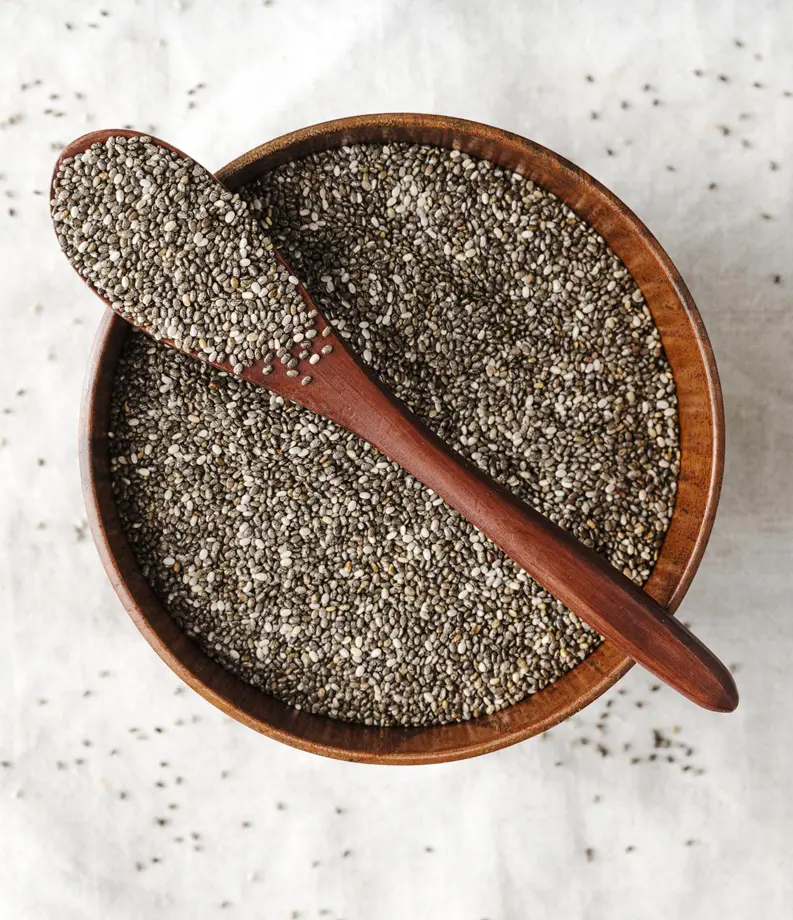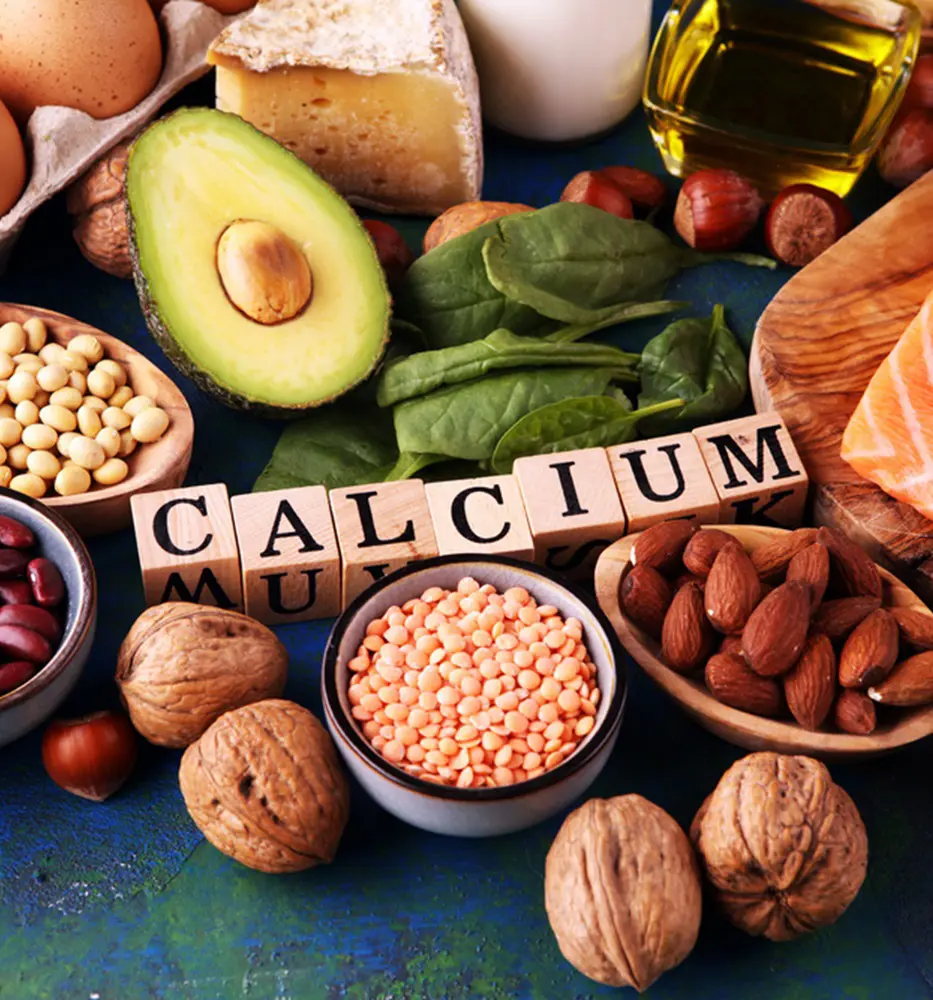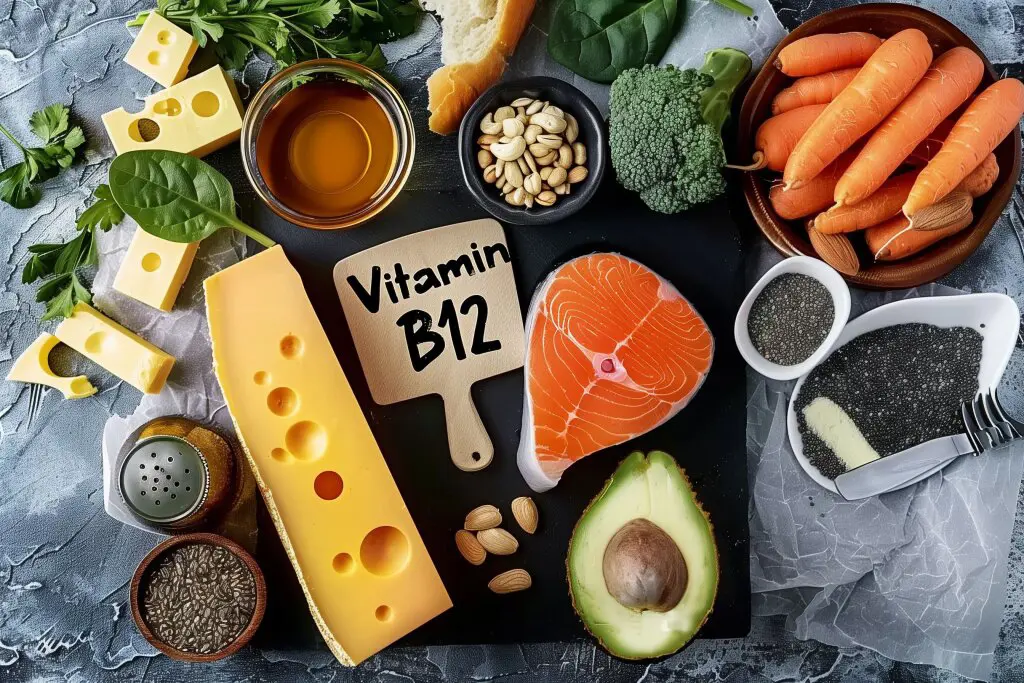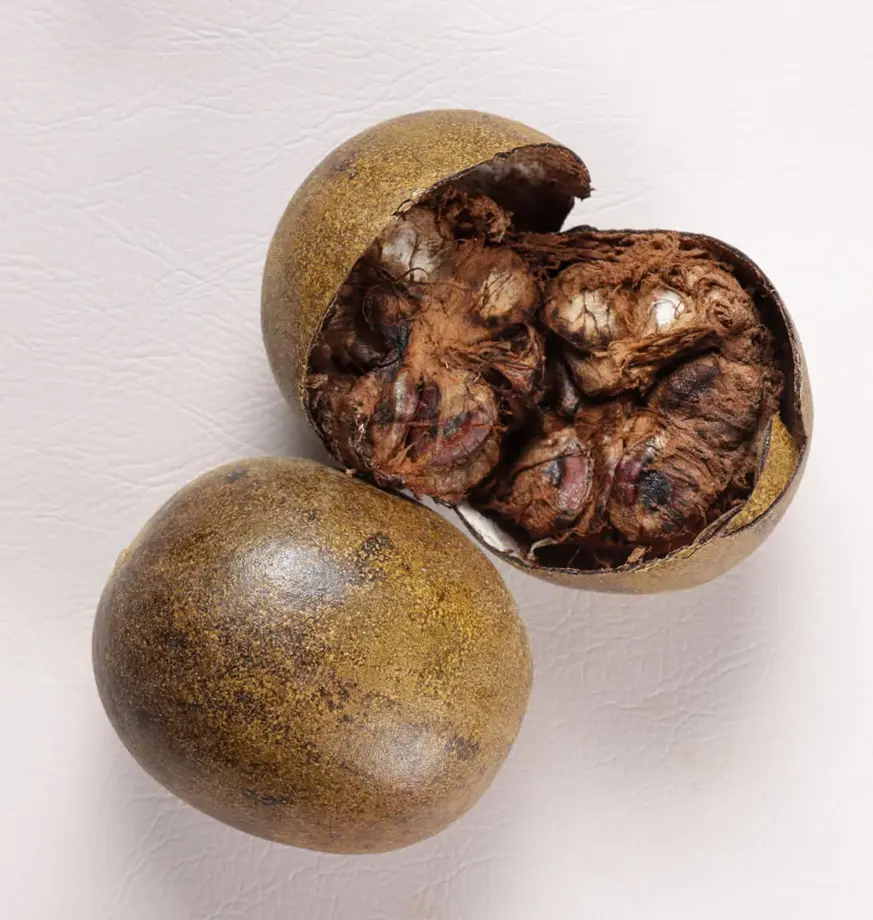Are Egg Whites Good For You? Benefits, Nutrition, And How To Eat?

This post may contain affiliate links. If you make a purchase through links on our site, we may earn a commission.
Egg whites are popular these days while egg yolks are considered a health havoc. This claim is not always true but if you are someone who is going through weight gain problems or other conditions like heart disease, it's important to focus on egg white-containing meals more.
Here, we have included the benefits and nutrition of egg whites. After being well aware of the potential advantages this superfood has to offer, you will be able to decide whether to add them to your diet or not. At last, we have also included various ways to add egg whites to your diet and potential risks associated with the intake of egg whites.
1. High In Protein
The most abundant nutrient in egg whites is protein. Due to the presence of all nine essential amino acids, egg white is a source of complete protein, important for muscle repair, growth and toning. This high-quality protein can be included in the diets of athletes and other highly active individuals.
One egg white has about 3.53 grams of protein and the good news is all of it is bioavailable. This means our body can absorb it as well as efficiently use all of the protein to perform various functions.
2. Low In Calories
A whole egg has 70 to 80 calories out of which around 55 to 60 calories are concentrated in the yolk. So, avoiding egg yolk and including egg whites can do best for calorie-deficit diets. The protein content further aids the calorie-deficit journey as the protein content increases satiety.
As egg whites are no fat or carbohydrate source, almost all calorie content is due to protein. The fat-free and cholesterol-free nature of egg whites makes them a perfect food for the heart as well.
3. Perfect For Muscle Recovery

Muscle protein synthesis requires various amino acids. Among nine amino acids that the body depends on food sources for repairing and building muscle tissue, all of them are present in egg whites.
Moreover, muscle tears caused by intense exercises can also be healed with the support of amino acids present in egg whites. The healing ability of egg whites can make it a proper post-workout snack, best when consumed within 30 to 60 minutes after workouts.
4. Free Of Cholesterol
Opposed to other animal sources of food, egg whites have no cholesterol at all. Anyone who is including egg whites in the diet means they are totally avoiding unhealthy fats without compromising on the protein supply.
Consuming egg whites means you are staying away from saturated fats as well. Very commonly found in animal foods, intake of saturated fats is related to increased occurrence of heart diseases.
5. Supports Weight Loss

A diet for weight management demands foods low in calories. An egg white contains as little as 17 calories. Despite their low caloric value, egg whites have nutrients that further aid the weight loss journey.
Protein-rich foods are highly recommended by dietitians for effective weight loss. Including egg whites comes with added benefits in this case as they contain virtually no fat. This means the caloric count is maintained helping you to track your weight loss journey.
6. Egg Whites Are Hydrating
It would be very surprising for anyone to know that more than 80% of egg whites are just water! The high water content is what makes it a staple in baking. The high water content allows the trapping of air easy, resulting in the fluffy texture of the baked item.
The hydrating nature of egg whites also makes it a suitable addition to post-workout meals. They help to replenish the fluids lost during heavy exercises. Overall, egg whites make the best hydrating food option that is also low in calories.
7. Good For Skin And Hair

Egg whites are topically applied to achieve tightened skin. The tightened effect is due to the reduced number of pores. When consumed, the high protein content of egg whites increases the production of collagen further aiding the process of making skin elastic and firm.
The proteins in egg whites also strengthen hair follicles, the growing region of the hair shaft. The available proteins help nourish the hair, making it shinier and more resilient. The B vitamins present in egg whites also help prevent hair loss. You can prepare a hair mask from egg whites and apply it regularly to improve hair texture, reduce breakage, and enhance shine.
8. Lowers Blood Pressure
Egg whites are not a mineral powerhouse but it contains a significant amount of some important ones. For instance, the potassium content in egg whites is quite notable, around 53.8 mg per egg white. This amount is what helps to reduce blood pressure.
Moreover, the peptides present in egg whites also help reduce blood pressure levels. These peptides are known to dilate the blood vessels, ensuring smooth blood flow and ultimately preventing the risk of hypertension. The overall nutrient content that supports a healthy weight also has a significant role to play here as a healthy weight is connected to well-maintained blood pressure.
9. Heart-Friendly

There are several reasons for egg whites being heart-friendly. The first and foremost reason is zero cholesterol level. For individuals consuming whole eggs, they are also consuming bad cholesterol and saturated fats which are harmful to blood vessels as well as the heart.
As already mentioned earlier, egg whites also have the potential to maintain a healthy weight and reduce blood pressure. All these factors combined reduce stress on the heart and make sure that heart cells function well for a long period of time. Therefore, egg whites make a seamless addition to a heart-healthy diet.
Egg Whites Nutrition
According to USDA, an egg white (33g) cooked without additional fat contains the following nutrition:
- Water: 28.4g
- Protein: 3.53g
- Fat: 0g
- Calcium: 2.31mg
- Magnesium: 3.63mg
- Iron: 0.026mg
- Potassium: 53.8mg
- Sodium: 92.7mg
- Phosphorus: 4.95mg
- Selenium: 5.87mg
- Vitamin B1: 0.001mg, B2: 0.122mg, B3: 0.031mg, B6: 0.002mg, B9: 0.99mg, B12: 0.023mg
- Energy: 17.2 kcal
This data gives a brief insight into the healthy nutrients of egg whites. Not only proteins, vitamins and minerals are also inherent parts of egg whites.
How To Eat Egg Whites

Just like whole eggs, egg whites can be used in the preparation of multiple delightful dishes. Some popular ones that have stood the test of time include:
Egg White Omelette
Egg-white omelets can make a perfect breakfast dish. For preparation, you just need to whisk egg whites until they are bubbly. Season the egg with salt according to your taste and cook them well to get a fluffy hot omelet,
Scrambled Egg White
This recipe is even more easy and needs very less ingredients to prepare. Stir the whished eggs gently until they cook and serve immediately for a protein-packed meal that is light and satisfying.
Egg White Breakfast Bites
These bites are a convenient way to enjoy egg whites. Baked along with your favorite ingredients, egg white breakfast bites can be stored in the refrigerator to enjoy a quick breakfast throughout the week.
Pancakes
If pancakes are your favorites, replacing whole eggs with egg whites can be a great way to recreate a lighter version. Calories and fats are reduced in the pancake by following this recipe.
Others
Some other preparation ways to relish egg whites are preparing meringues, soufflés, frittatas, cloud bread, muffins and waffles.
Potential Risks Of Eating Egg Whites

There are numerous benefits of egg whites. While relishing these benefits, it's also important to know the potential risks this superfood possesses. Some of the effects of consuming egg whites that need to be considered are listed below:
Allergies
For individuals who are allergic to whole eggs, there is a high chance for egg whites to induce allergic reactions. For such individuals, the immune system reacts specifically to the peptides present in eggs which are also highly concentrated in the whites.
What's interesting about egg allergies is that people's immunity tends to react more to egg whites compared to yolk, most probably due to more peptides in them. If you are allergic to whole eggs then you should definitely avoid egg whites as well.
Infections
Fully cooked egg whites can't be pondered for causing foodborne illness. The trouble arises when the egg whites are half-cooked or uncooked. Many bacteria related to food poisoning are found to be present in egg whites that are not cooked properly. One such bacteria is Salmonella.
Salmonella is a pathogenic bacteria that has long been known to cause serious illness. Nausea, fever, abdominal cramps, diarrhea and vomiting are some symptoms of the infection. To prevent infection from occurring, it's important to consume fully cooked egg whites.
Risks Related to Processed Egg White
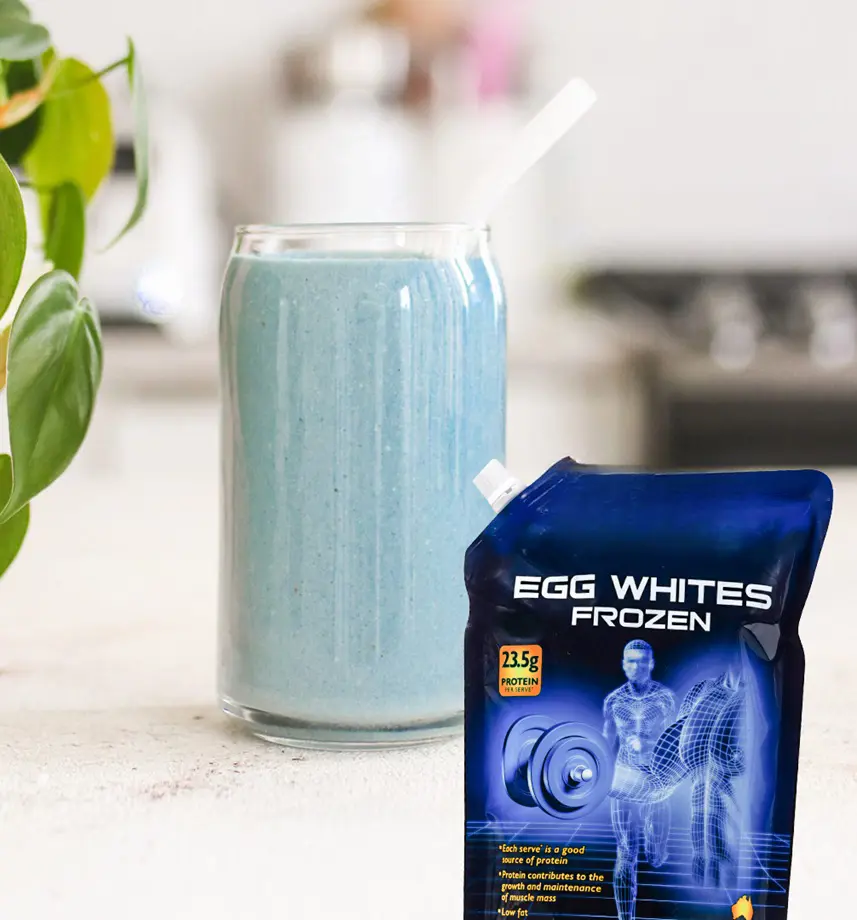
Egg-white products are also available commercially. These products however are not exactly the replica of the natural ones. They are loaded with additional chemicals including sodium. The increased sodium level in the body does no good rather can cause problems including heart disorders.
So whenever you are opting for commercial egg whites, it's important to know what's on the label. For safety, consume these in moderation and try to include natural ones in your diet more.
Except for these, there are no known risks related to the consumption of egg whites. The daily recommended protein intake value is 0.8 grams per kg of body weight. So, egg whites can be spread in different meals of the day to complete the recommended intake. For several ways to add egg whites to meals, we have already mentioned different recipes earlier.
Bottom Line
There is no such thing as egg whites are bad for any individual, unless and until you are already allergic to eggs. These allergic responses are natural and there are no ways to alter them. Except for this condition, egg whites are healthy.
Whole eggs however are questionable due to their cholesterol content. There is no limit on the number of egg whites that can be consumed, however, it is suggested to include 4 to 6 of them for individuals looking for a balance in protein level. Just make sure that you cook them well before consuming and the remaining shall go well!
Recent posts
Nutrition
Nutrition
16 Benefits Of Coriander That Will Surprise You
Abundant in nutrients and antioxidants, coriander is an annual herb with a characteristic aroma that is extensively used around the world. Both coriander leaves (also called cilantro) and seeds are used in various cuisines around the world. Known fo...
Nutrition
Chia Seeds Benefits: 15 Reasons To Eat These Tiny Seeds
Chia seeds are tiny edible seeds obtained from the plant known as "Salvia hispanica", belonging to the mint family. Oval, gray, and filled with black and white spots, these small seeds are highly valued for their abundant nutrients and health be...
Nutrition
How Much Calcium Is Actually Needed?
Calcium is a mineral associated with bones, muscles and the nervous system in the body. Current dietary guidelines suggest different Recommended Dietary Allowances(RDAs) for adult males and females, with 1000mg being optimal for males and 1200mg for...
Nutrition
B12 Vitamin Food Sources: A Comprehensive Guide
Vitamin B12, an essential nutrient, plays a crucial role in various bodily functions, including red blood cell production, nerve function, and DNA synthesis. While animal-based foods are the primary sources of B12, certain fortified plant-based foods...
Nutrition
What Foods Are High In Cholesterol? 20 Foods To Avoid
Animal products like meat, eggs, milk, and cheese are sources of dietary cholesterol, unlike plant-based foods. For those aiming to lower their cholesterol intake, it's essential to be mindful of animal-based food choices. While some high-cholesterol...
Nutrition
18 Fat Burning Smoothies For Weight Loss
The weight loss journey is tough if you have to get on the same path day after day, facing cravings and temptations along the way. We suggest you stop making it a monotonous struggle and make it a flavorful adventure instead. One of the easiest and m...

